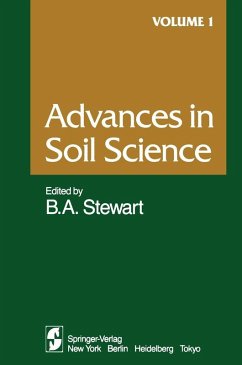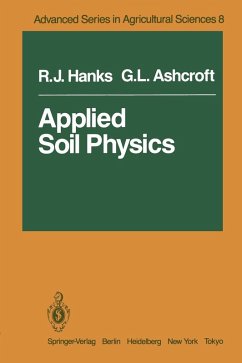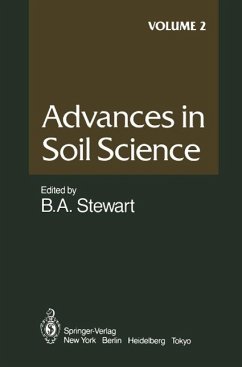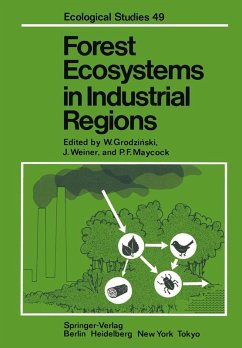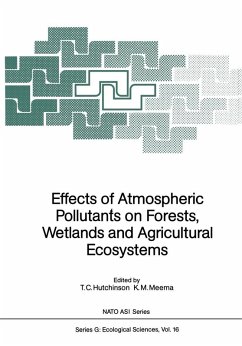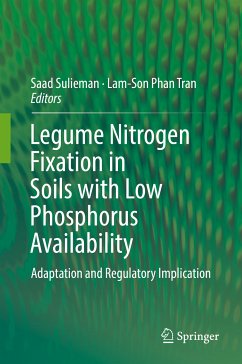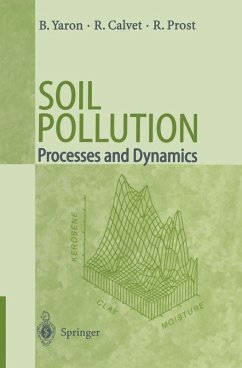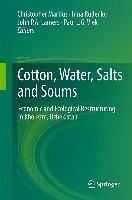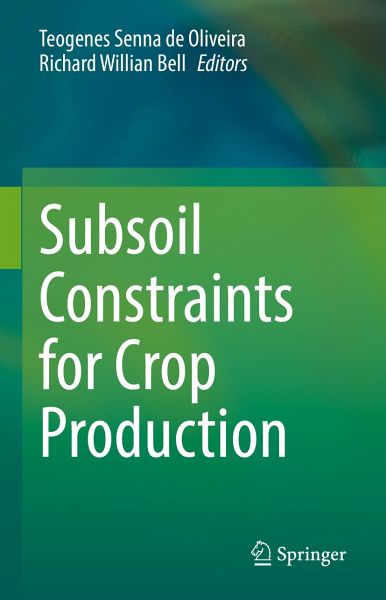
eBook, PDF
Subsoil Constraints for Crop Production (eBook, PDF)

PAYBACK Punkte
48 °P sammeln!





to be inserted
Dieser Download kann aus rechtlichen Gründen nur mit Rechnungsadresse in A, B, BG, CY, CZ, D, DK, EW, E, FIN, F, GR, HR, H, IRL, I, LT, L, LR, M, NL, PL, P, R, S, SLO, SK ausgeliefert werden.
Teogenes Oliveira is currently a Professor at the Federal University of Viçosa, Brazil, having worked for several years at the Federal University of Ceará, where he continues to run a Postgraduate Program in Ecology and Natural Resources. His academic and scientific work is in the area of Soil Science, focusing especially on the study of soil and water management and conservation and agroecology, with emphasis on the management of soil organic matter and residues and their role in the quality of the soil and the environment. He also develops academic and scientific activities that seek to evaluate the consequences of intensive soil use, together with the design and evaluation of more environmentally balanced agricultural systems, made possible through the understanding and application of concepts for reinforcing ecological processes and relationships. His expertise in the Brazilian semi-arid region has helped in generating data and in training people to work with both high and low external-input cultivation systems: irrigated systems, mixed cropping (agroforestry) systems, organic, and minimum tillage systems, all with a view to strengthening ecological processes and relationships. He has published 110 refereed journal papers, 18 book chapters and articles in proceedings, and edited 6 books. Richard Bell, who has been Professor of Land Management at Murdoch University since 2007, is a specialist in soil fertility and crop management with lecturing and research experience in Australia, Bangladesh, Brazil, Cambodia, China, India, Indonesia, Fiji, Sri Lanka, Thailand and Vietnam. His interests are in management and fertility constraints associated with sandy, acid, salt-affected and degraded soils; nutrient cycling in farmland, rehabilitated land and forests; rehabilitation of degraded land; sustainable agricultural systems; Conservation Agriculture, and research for agricultural development. He has authored 222 refereed journal papers, 101 book chapters and articles in proceedings, and edited 15 books. Much of his published work has concerned the mineral nutrition of crop and plants and cropping systems intensification for smallholder farms. He has led and collaborated on international projects in Thailand (1984-89), China (1992-97), Cambodia (2004-present), Bangladesh (2006-present), Vietnam (2007-2019), India (2015-present) and Laos (2017-present). He has supervised 70 PhD and MSc students.
Produktdetails
- Verlag: Springer International Publishing
- Seitenzahl: 450
- Erscheinungstermin: 3. August 2022
- Englisch
- ISBN-13: 9783031003172
- Artikelnr.: 64721136
Für dieses Produkt wurde noch keine Bewertung abgegeben. Wir würden uns sehr freuen, wenn du die erste Bewertung schreibst!
Eine Bewertung schreiben
Eine Bewertung schreiben
Andere Kunden interessierten sich für


